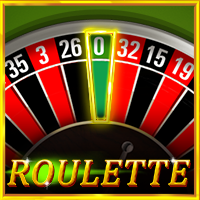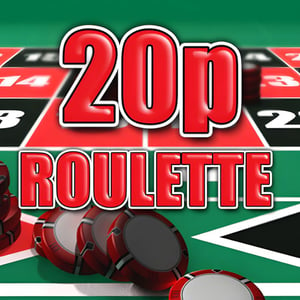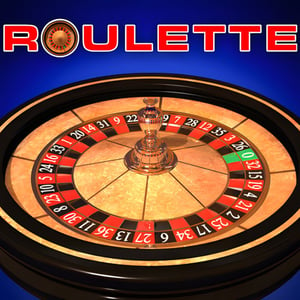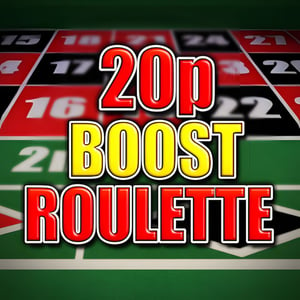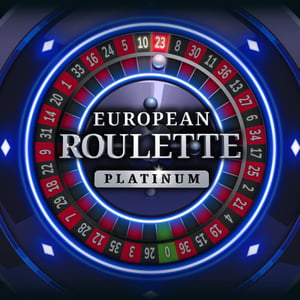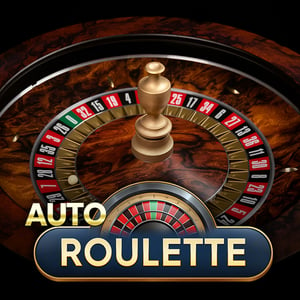
Online Roulette UK: Play Live Dealer Roulette Games
Roulette remains a well-established choice for players in the UK, with online casinos providing access to both live and digital formats. Some players are drawn to the atmosphere of live dealer tables, while others prefer the speed and range of RNG-based games. Each option offers a different style of play.
This main page explains how online roulette works, outlines the main game types, and describes what to expect from both live dealer and RNG versions. It also includes a breakdown of the basic rules, how the wheel and table work together, and an overview of odds, potential payouts, and common betting systems.
Continue reading to explore the details.
How Online Roulette Works
If you play online roulette, you’ll find it tends to closely resemble the game in a land-based casino. You would start by choosing a version of the game, placing your bets on the digital table, and then watching the wheel spin.
Online roulette generally comes in two forms. In Random Number Generator (RNG) roulette, certified software ensures that each result is fair and independent, meeting UK regulatory standards. Alternatively, if you prefer a more authentic experience, live dealer roulette lets you place bets on-screen while watching a real croupier spin a physical wheel via a live video stream.
After each spin, you’ll see the result, with any winnings typically paid out automatically. You may then choose to adjust your bets or repeat them using the on-screen controls. Most online roulette games run smoothly on mobile, tablet, and desktop devices, so you can expect a consistent experience regardless of how you might choose to play.
Types of Casino Roulette Games
Online casinos in the UK offer several versions of roulette. Each uses a familiar wheel and table, though small rule variations may affect how the game plays.
European Roulette
European roulette features 37 numbered pockets, ranging from 0 to 36. It includes a single green zero, which distinguishes it from other variants like American roulette that have an additional double zero. The presence of only one zero reduces the house edge to approximately 2.7%, making it a potentially more favorable option for players who prefer better odds.
This version is widely considered the standard format across many casinos, especially in Europe and online platforms. Its popularity comes not only from the odds but also from its long-standing history and consistency in rules. For many players, especially beginners, European roulette typically serves as the preferred choice due to its simpler layout and slightly higher chances of winning.
American Roulette
American roulette uses 38 pockets, adding a double zero (00) alongside the numbers 0 to 36. This additional pocket alters the probabilities and increases the house edge to around 5.26%, making it less potentially favourable to players compared with European roulette. The higher house edge is one reason why American roulette is generally less common in UK casinos.
In the UK, European roulette is typically the standard offering, especially in land-based venues and regulated online platforms, such as Ivy Casino. However, American roulette can still be found occasionally—particularly in online casinos that cater to international audiences or offer a broader range of game variants. While some players may be drawn to the novelty of American roulette, it’s important to note that the odds are slightly worse due to the presence of the double zero. For this reason, UK players often tend to stick with the European version, which offers a better chance of bets potentially paying off.
French Roulette
French roulette also uses 37 pockets and a layout that often features French terms. Some tables include La Partage or En Prison for even-money bets. When these rules apply, a portion of the stake may be returned or held if the ball lands on zero, which may improve the effective house edge for those specific bets.
As you look at versions, it helps to focus on how many zeros are on the wheel and whether any special rules apply to even-money bets.
Live Dealer Roulette vs Online RNG Roulette
If you choose to play online roulette, you’ll usually find yourself deciding between live dealer tables and RNG-based games—both of which offer a different way to enjoy the same classic format.
Live dealer roulette involves a real croupier and a physical wheel, streamed in real time from a dedicated studio or casino setting. You would place your bets on a digital interface while watching the dealer spin the wheel, with the result shown as the ball lands. Some tables also include a chat function, giving you the option to interact with the dealer—and occasionally other players—for a more social experience that echoes the feel of a land-based casino.
RNG roulette, by contrast, is fully digital. If you opt for this version, each spin is simulated using certified software, without any video feed. This often means faster gameplay and a wider choice of themes, designs, and table limits. Every result is independently generated and regularly audited to ensure fairness in line with UK regulatory standards.
Both formats follow the same core rules, so the decision largely depends on how you prefer to play. If you’re drawn to the atmosphere of a live setting and like the idea of seeing a real wheel in action, live dealer roulette may be a better fit. But if you prefer potentially quicker rounds, more flexibility with stakes, and a broader selection of styles, you might find RNG roulette more suited to your preferences.
How To Play Roulette: Rules For Beginners
If you decide to play roulette, the game typically starts to make sense once you understand how the wheel and table work together. The wheel contains the numbered pockets where the ball can land, while the table layout shows all the possible bets you can place. You would place your chips on the table to back a single number, a combination of numbers, or a broader outcome, such as red or black.
Once all bets are placed, the wheel is spun, the ball lands in a pocket, and any potentially winning bets are paid before the next round begins. Each round follows a clear structure, whether you’re playing in a land-based casino, online, or on a digital terminal.
Step-by-Step Roulette Rules
If you choose to play roulette, you’ll find that each round follows a simple, structured flow. Whether you’re playing in a land-based casino, online, or at a digital terminal, the core steps stay the same. Here’s how a typical round unfolds:
Step 1: Choose Your Chip Value
At the beginning of the round, you’d start by selecting your chip value. Most games offer a range of denominations to suit different playing styles and budgets. In a physical casino, coloured chips are often used to keep each player’s bets separate.
Step 2: Place Your Bets on the Layout
Next, you’d use your selected chip value to place bets on the table layout. You can back a single number, a group of numbers, or broader outcomes like red or black, odd or even. You’re typically free to place as many bets as you like, as long as you stay within the table’s limits, though some platforms may not permit certain bet combinations—make sure to check the terms and conditions beforehand.
If you’re playing online, placing your bets might involve dragging and dropping chips onto the screen. In person, you’d physically place your chips on the layout.
Step 3: Finalise Your Bets Before the Cut-Off
Once betting opens, there’s a short window to make your selections. In a live setting, the dealer will often call “no more bets” just before spinning the wheel. In digital or online games, a countdown timer or confirmation button usually indicates when the betting phase ends.
Step 4: The Wheel is Spun
When betting closes, the wheel is spun in one direction, and the ball is launched in the other. In a live game, the dealer handles this. If you’re playing an RNG-based version, the spin is automated—either through an animation or by software that randomly determines the outcome.
Step 5: The Winning Number is Revealed
The ball eventually drops into one of the wheel’s numbered pockets. That number becomes the result for the round. In live games, the dealer will announce the outcome and mark it on the table. Online, it’s typically displayed instantly on your screen.
Step 6: Payouts Are Made Automatically
If your bet wins, the payout is made according to the game’s paytable. The amount you receive depends on the type of bet—for instance, betting on a single number offers a much higher return than betting on red or black. In online games, your winnings are usually added automatically. In live settings, the dealer will pay out successful bets and clear away the losing chips.
Step 7: Prepare for the Next Round
Once payouts are completed, a new round begins. If you’re playing online, you’ll usually see options like Rebet, Double, or Clear Bets—shortcuts that let you repeat, adjust, or reset your wagers. In a live game, you’d need to place your bets again manually, unless you’ve chosen to keep your chips on the table.
If you continue playing, this cycle repeats with each spin. Once you’re familiar with the process, the structure of the game typically becomes easy to follow, allowing you to focus more on your betting decisions and overall approach.
Placing Inside & Outside Bets
If you choose to play roulette, you’ll notice there are two main types of bets you can place: inside bets and outside bets. Each comes with its own set of options, payout potential, and likelihood of winning.
Inside bets focus on individual numbers or smaller groups of numbers on the betting layout. For example, you might place a straight-up bet on a single number, which offers the highest payout but has the lowest chance of hitting. Alternatively, you could choose a split bet, covering two numbers next to each other on the table, or a corner bet, which includes four numbers that meet at a shared corner.
Other options include street bets (three numbers in a horizontal line) and line bets (six numbers across two adjacent rows). These types of bets generally pay more if they win, but the outcomes occur less frequently.
Outside bets, on the other hand, cover larger sections of the table and focus on broader outcomes. If you prefer placing bets that have a higher chance of success, you might choose to bet on red or black, odd or even, or high or low numbers (1–18 or 19–36).
There are also dozen bets, where you’d back one of three number ranges (1–12, 13–24, or 25–36), and column bets, which cover one of the three vertical columns on the layout. These bets typically offer lower payouts but win more frequently, which may appeal if you’re focusing on outcomes with higher chances of success.
Each table will also have minimum and maximum limits for different types of bets. These limits often vary between inside and outside bets. For example, you might find that outside bets have a lower minimum to encourage frequent betting, while inside bets allow higher maximum stakes because of their greater potential returns.
Casinos may also apply specific rules to limit certain combinations of bets. For instance, you might not be allowed to bet on both red and black in the same round, or place multiple wagers that cover most of the wheel. These rules are in place to keep the gameplay balanced and fair.
Because betting limits and restrictions can differ between tables, especially when you’re playing online or in a live casino, it’s worth reviewing the table rules before placing your bets. That way, you’ll know which options are available and can make sure your bets are valid.
How The Roulette Wheel & Table Layout Work
If you decide to play roulette, you’ll notice that the wheel displays either numbers 0 to 36—as in most European and French versions—or 0, 00, and 1 to 36, which is standard in American roulette. The order of the numbers around the wheel differs depending on the version, but this doesn’t affect how the main bets are paid out.
The table layout reflects the wheel numbers and includes sections for placing both inside bets (on individual numbers or small groups) and outside bets, such as red or black, odd or even, high or low, dozens, and columns. Some games also include a racetrack layout, which gives you the option to place neighbour bets—covering numbers that sit next to each other on the wheel itself, rather than just on the table grid.
Before you begin, it’s worth checking the information panel within the game. This usually outlines the rules, paytable, and any table limits, helping you understand how each bet is handled on that specific version.
Roulette Odds and Payouts Explained
If you choose to play roulette, it helps to understand how each type of bet works in terms of odds and potential payouts. Every bet combines two key elements: the likelihood of it winning, and what you stand to receive if it does. Generally, the higher the potential payout, the lower the chance of that outcome occurring.
For example, if you place a straight-up bet on a single number, it usually pays 35 to 1 on European and French tables if it’s successful. However, with only one winning number out of 37, your chance of winning is around 1 in 37. A split bet, which covers two adjacent numbers, typically pays 17 to 1 if it’s successful. A corner bet that includes four numbers usually pays 8 to 1 if it’s successful.
If you prefer broader coverage, bets like dozens and columns cover 12 numbers each and usually pay 2 to 1 if they’re successful. The most frequent outcomes are covered by even-money bets, such as red or black, odd or even, and high or low (1–18 or 19–36), which typically pay 1 to 1 if they’re successful, as they cover nearly half the wheel.
It’s also useful to consider the house edge, which varies depending on the version of roulette you’re playing. On European roulette, the house edge is typically around 2.70%. On American roulette, which includes an extra double zero (00), the edge usually rises to 5.26%. If you’re playing on a French roulette table that applies the La Partage rule to even-money bets, the house edge on those bets can effectively drop to around 1.35% when the ball lands on zero, as half your stake is returned.
Because odds and potential payouts can vary slightly between tables, especially online, you might want to check the paytable and specific rules on the version you’re playing. This helps ensure you know exactly how each bet is settled and what you could receive if your bet wins.
Best Roulette Strategy & Betting Systems
If you choose to play roulette, you may come across betting systems that suggest particular ways of placing and adjusting your bets based on previous results. These systems often involve patterns, such as increasing or decreasing your stake after a win or loss. While they might influence how you approach the game, they do not change the actual odds. Each spin is random and independent.
Examples include the Martingale, where bets are doubled after a loss, as well as the Fibonacci and Labouchere systems, which follow specific numerical sequences. Although these methods are well known, they do not improve your chances of winning and can lead to quickly increasing bet sizes.
At Ivy Casino, many betting systems of this nature, including the Martingale, Fibonacci and Labouchere systems, are not permitted. This includes strategies that involve covering large parts of the table or following repeated staking patterns. These rules are in place to maintain fair and consistent gameplay for everyone.
If you prefer a straightforward approach, you might choose bet types and amounts that feel right to you for each round—whether that’s focusing on individual numbers, broader outcomes like red or black, or a combination of both.
Before you start playing, it’s advisable to review the Ivy Casino terms and conditions or the game’s information panel. This will help you understand any restrictions and ensure your bets comply with the table rules and casino guidelines.
Play Roulette Online at Ivy Casino
If you’re looking to play online roulette in a fully regulated environment, Ivy Casino offers a variety of live dealer and RNG tables. We provide clear information on game rules, payout structures, and betting limits upfront, so you can make informed decisions about your play.
As a site licensed and regulated by the Gambling Commission of Great Britain, we ensure all roulette games, including live tables, are tested to meet UK fairness standards. Our support team is always available, and we provide access to guidance on game features and table rules whenever you need it.
To help you manage your experience, Ivy Casino offers tools that allow you to set deposit limits, review your activity, and take breaks if you wish. If this sounds interesting to you, feel free to create an account, deposit some funds to play with and explore the roulette lobby at your own pace, with everything designed to provide clear information and secure play.
If you choose to play roulette, or any other casino game at Ivy Casino, always do so with responsible gambling practices in mind and never wager more than you are willing to lose.
Online Roulette FAQs
How Many Numbers Are on a Roulette Wheel?
A European and French roulette wheel has 37 pockets, 0 to 36, while American roulette has 38 because it includes 00.
What Number Hits The Most on Roulette?
On regulated platforms, each spin is independent and no number is more likely than another over time.
How Do You Bet on Roulette?
Place chips on the table layout to back a single number, a small group like a split or corner, or outside options such as red or black and odd or even.
What Are The Chances of Winning at Roulette?
It depends on the bet. For instance, a straight up on a European wheel has a 1 in 37 chance and typically pays 35 to 1 if it’s successful, while even-money bets usually pay 1 to 1 if they’re successful and win more often.
Is Online Roulette Fair?
Yes. UK-licensed casinos are regulated and regularly tested so that outcomes are random and fair, whether the game is live dealer or uses an RNG.
*All values (Bet Levels, Maximum Wins, etc.) mentioned in relation to these games are subject to change at any time. Game features mentioned may not be available in some jurisdictions.
**The information provided in this blog is intended for educational purposes and should not be construed as betting advice or a guarantee of success. Always gamble responsibly.





















